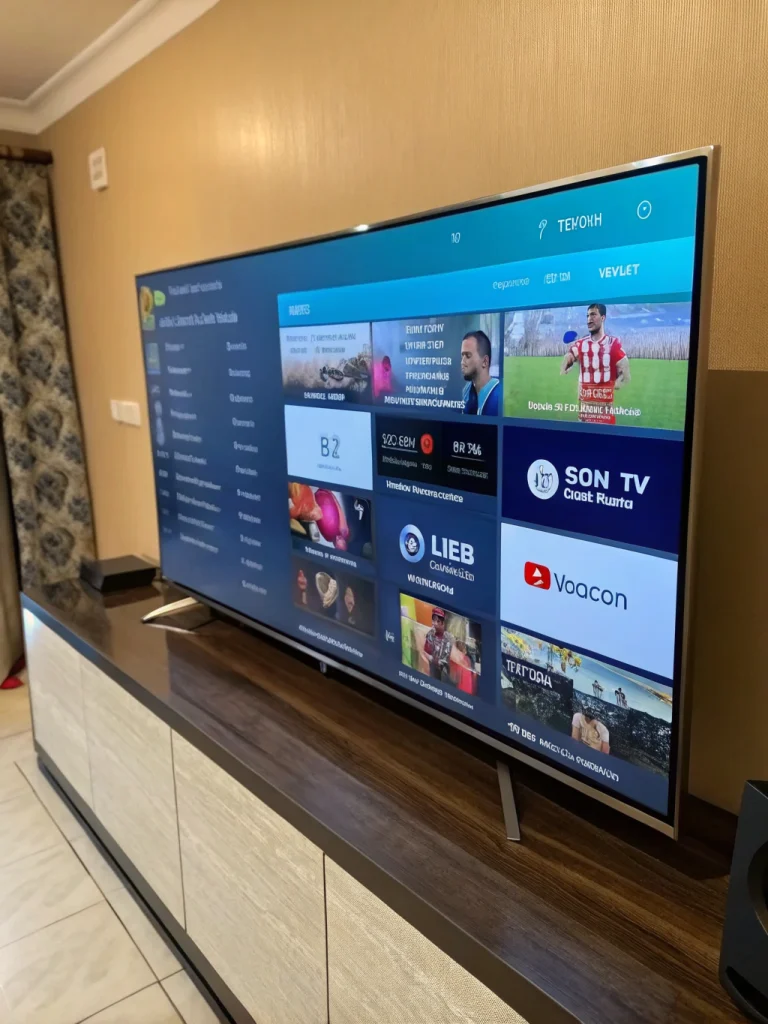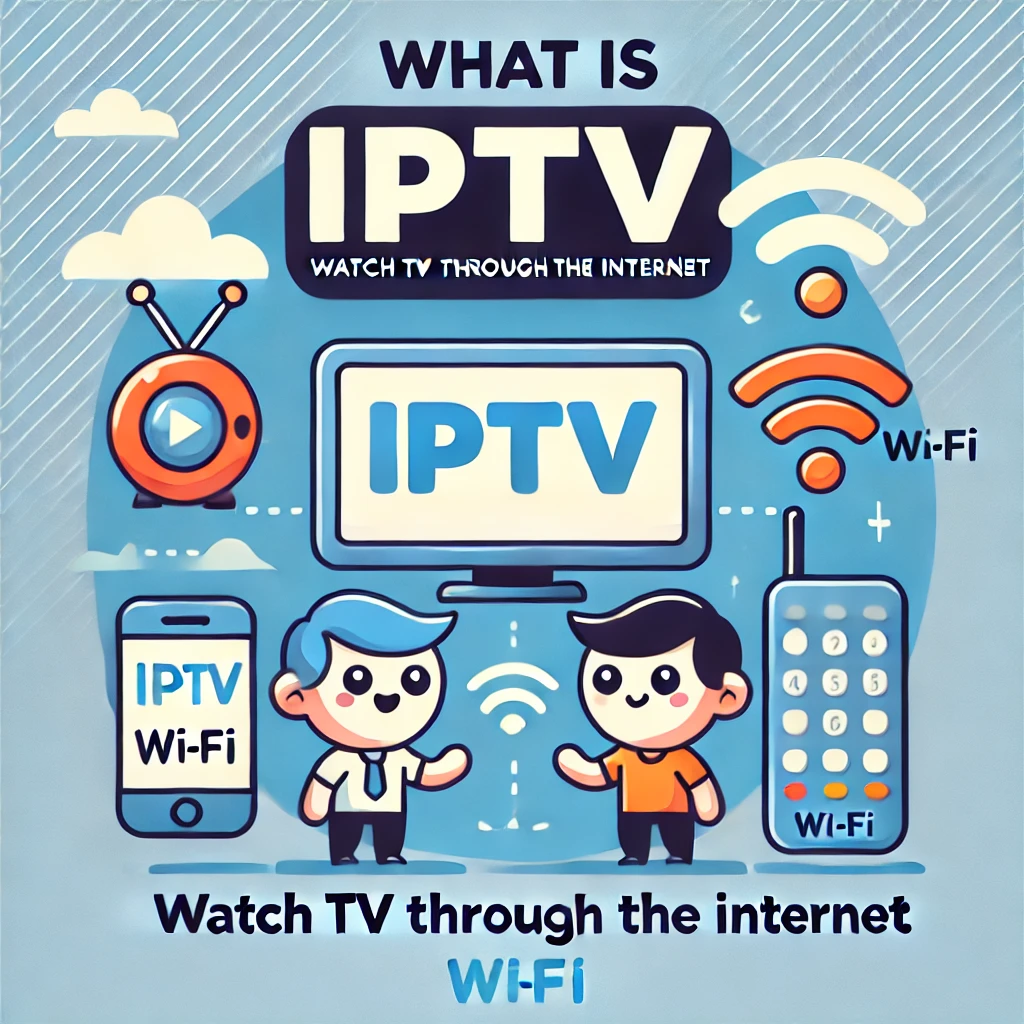5 Key Differences Between OTT IPTV and Why It’s the Best Choice for Streaming
Introduction
OTT IPTV is becoming a pivotal term in the modern-day streaming industry. More people are leaving cable TV and choosing internet TV services.
Knowing the differences between IPTV and OTT is important. This knowledge is essential for both consumers and businesses. With this knowledge, you can make a smart choice when picking the best entertainment and streaming options. This includes legal and reliable services like RevoIPTV.
In this article, we will explore OTT IPTV in detail. We will look at its definitions, benefits, and how it compares to other internet TV options, especially IP OTT. We will also explain the key differences between these technologies.
For example, we will discuss IPTV and OTT. We will help you decide which one is better for you.
What is OTT IPTV?
OTT IPTV refers to two distinct technologies:
- IPTV (Internet Protocol Television) is a service that sends TV shows through a private network. This network can use fiber optics or DSL.
- OTT (Over-The-Top) is a streaming service. It skips traditional cable or satellite. Instead, it streams content over the public internet. Popular OTT platforms include Netflix, Disney+, and YouTube.
While both OTT and IPTV use the internet to deliver video content, the underlying technologies differ significantly. To understand IP OTT, you need to know how these services manage content delivery, infrastructure, and user experiences.
For more details on global internet traffic growth and OTT media delivery, see Cisco’s Visual Networking Index Report. This report highlights the rising trends in video traffic, a critical element of the OTT IPTV landscape.
What is the Difference Between IPTV and OTT?
The critical difference between IPTV and OTT is their network infrastructure. IPTV delivers content via a closed, proprietary network controlled by an internet service provider (ISP). On the other hand, OTT uses the open internet. This lets users stream on many devices, like smartphones, smart TVs, and computers.
Here’s a detailed breakdown of IPTV vs OTT:
- Content Delivery:
- IPTV uses a multicast method, sending video streams to multiple recipients simultaneously.
- OTT uses a unicast method, delivering content to individual devices based on requests.
- Device Compatibility:
- OTT is flexible, allowing users to stream from any internet-connected device.
- IPTV often requires specialized hardware like set-top boxes or routers for connection.
- Network Control:
- IPTV provides better quality control since it uses a managed network with dedicated bandwidth.
- OTT relies on the user’s internet connection, making its quality more variable.
To learn more about these differences, read this helpful CNN article. It explains how global internet use affects OTT media delivery services.
How Does IPTV Work?
IPTV works by transmitting television programming over a private, high-bandwidth network. Unlike OTT, IPTV reserves bandwidth specifically for video, ensuring higher quality and more secure content delivery.
- Multicast Distribution: IPTV uses multicast technology to distribute content. This method sends a single video stream to multiple users simultaneously, reducing network strain.
- Hardware Requirements: IPTV usually needs set-top boxes. These boxes decode the video signal and show it on the user’s TV. While this setup is more traditional, it guarantees higher quality service.
For users seeking high-quality, dependable TV streaming, IPTV might be the preferred option.
How Does OTT Work?
OTT platforms do not require special hardware. They deliver content over the internet. This is often through subscriptions or ads. Since it uses a unicast method, the system sends the content directly to the user’s device.
Benefits of OTT:
- Wide Compatibility: Can be accessed on smartphones, smart TVs, computers, and tablets.
- Flexible Pricing: Ranges from free, ad-supported services to low-cost subscriptions.
- No ISP Restriction: Since OTT doesn’t depend on a specific ISP, users can switch providers easily.
Despite these benefits, OTT services can have variable quality. This often depends on the user’s internet connection. In contrast, IPTV offers guaranteed stability.
OTT vs IPTV – Pros and Cons
OTT IPTV presents a dynamic and ever-evolving technology, but which one is better suited for your needs? Let’s break down the pros and cons of both IPTV vs OTT to help you decide:
IPTV Pros:
- High-Quality Streaming: Thanks to dedicated bandwidth.
- Secure and Reliable: Private network guarantees fewer interruptions.
- Wide Range of Content: Access to live TV, on-demand content, and scheduled programming.
IPTV Cons:
- Higher Costs: Requires specific hardware and often comes bundled with broadband services.
- Limited flexibility locks you into specific ISPs and device compatibility.
OTT Pros:
- Lower Costs: Subscription options are usually cheaper than IPTV.
- Flexibility: Stream from any internet-connected device, with no hardware limitations.
- Scalability: Easier for new media companies to enter the market.
OTT Cons:
- Variable Quality: Depends heavily on the user’s internet connection.
- Network Bottlenecks: Public internet connections can cause lags, especially with high-traffic content.
Future of OTT and IPTV with 5G and Cloud TV
The advent of 5G technology will likely impact the OTT IPTV landscape, offering faster and more reliable internet connections. This development could help close the gap between IPTV and OTT services. It will provide better bandwidth for both types of users.
Moreover, Cloud TV represents a hybrid model that combines the benefits of both IPTV and OTT. This technology lets media companies provide TV shows with the flexibility of OTT. It also keeps the quality control of IPTV.
Recommended IPTV Provider: RevoIPTV
For choosing a reliable and legal IPTV provider, we recommend RevoIPTV. This service offers 100% legal IPTV streaming with superior quality and no buffering issues, thanks to its dedicated network. For live TV or on-demand content, RevoIPTV is a great choice. It also offers an easy user experience.
FAQs on OTT IPTV
What is the difference between IPTV and OTT ? – IPTV uses a closed network run by an ISP. In contrast, OTT delivers content over the open internet. This allows users to stream on many different devices.
Is IPTV better than OTT for live TV streaming? – For reliable, high-quality streaming, IPTV might be a better choice for live TV. It offers dedicated bandwidth and better network control.
How does bandwidth affect OTT streaming quality? – OTT streaming quality depends on the available bandwidth. Lower bandwidth may result in poor image quality, buffering, or disruptions in streaming.
Can OTT services offer live TV as IPTV does? – Yes, many OTT services, like Hulu Live and YouTube TV, now provide live TV options. However, they still depend on public internet connections.
Conclusion
In the ever-evolving world of digital television, OTT IPTV has redefined how we consume video content. With options like IPTV, users can enjoy high-quality and secure streaming through dedicated networks.
OTT provides flexibility and cost-effectiveness over the open internet. This means users have more choices than ever before. Knowing the key differences, like the difference between IPTV and OTT, helps consumers and businesses understand this changing market.
As technology advances with new ideas like 5G and Cloud TV, the differences between IPTV and OTT will fade. This will lead to hybrid models that mix the best features of both.
Choosing a reliable provider like RevoIPTV is important. They offer legal and high-quality IPTV services. This ensures a smooth experience, no matter how you like to stream your content.
In the end, you can choose between the strong, high-quality infrastructure of IPTV or the convenience of OTT. Your choice will depend on your needs and preferences in this exciting new era of internet TV.




0 responses on “5 Key Differences Between OTT IPTV and Why It’s the Best Choice for Streaming”